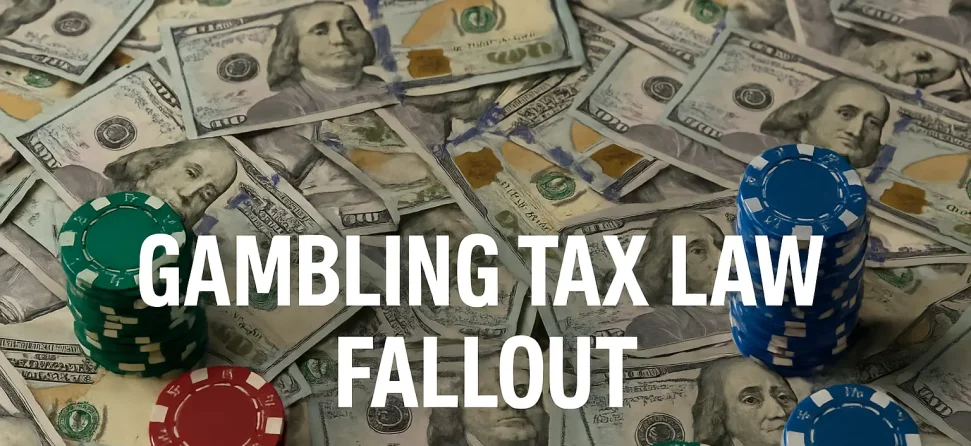How the Big Beautiful Bill’s Gambling Tax Provision Could Hurt U.S. Bettors

Buried deep in the recently passed “One Big Beautiful Bill” is a tax change that could reshape the way Americans gamble, especially those who do it seriously.
The new provision caps gambling loss deductions at 90%, effectively taxing bettors on income they never actually keep. It’s a change that’s already drawing criticism from professional gamblers, tax experts, and even lawmakers who admit they missed it during initial reviews of the bill.
While the measure doesn’t take effect until 2026, its impact could be felt much sooner. For many players, especially high-volume bettors and poker pros, the economics of betting legally in the U.S. just got a lot worse. And offshore sportsbooks are paying close attention.
What the New Law Actually Does
Under current law, gamblers can deduct 100% of their losses against winnings. For example, if you win $100,000 and lose $100,000 in a year, you owe nothing in gambling taxes because your profit is zero.
Starting in 2026, that same bettor would only be able to deduct $90,000 in losses. Using our example, that leaves $10,000 of taxable income on the books, even though no actual profit was made.
In short, you could lose money gambling and still owe taxes.
This applies to sports betting, poker, horse racing, and any other activity covered under gambling income. The change was tucked into Section 70114 of the bill and escaped much scrutiny until after passage.
Who Gets Hurt?
This isn’t just a problem for full-time professionals, though they’ll be hit the hardest. Anyone who bets frequently or plays high stakes could find themselves dealing with phantom tax bills.
- Poker players grinding live or online volume
- Sports bettors with big swings and low margins
- Recreational players who hit one big score, then give it back
Even casual gamblers who don’t realize how the IRS tracks and taxes winnings might be shocked when they’re told they owe taxes despite breaking even or losing for the year.
Why This Might Backfire
The federal government anticipates that the change will generate approximately $1 billion over the next ten years. But critics argue the long-term cost could be much higher. That’s because taxing phantom profits disincentivizes participation in regulated gambling markets.
The American Gaming Association has already spoken out against the provision, warning that it could drive players back to offshore books, unregulated casinos, and underground poker games. In short, places where the IRS doesn’t get a cut, but players still find ways to play.
States that have embraced legal betting may also see a dip in tax revenue if volume falls or players stop reporting fully out of fear of being penalized for losing money.
Offshore Sites Suddenly Look More Appealing
Offshore sportsbooks and casinos aren’t new, but they’ve lost some market share in the last few years as U.S. states rolled out legal betting markets. This new provision may reverse that trend.
Unlike regulated U.S. sites, offshore operators don’t issue tax forms, don’t report wins to the IRS, and don’t require your Social Security number. That lack of reporting has always been risky, but for some players, it could be a viable alternative.
What Comes Next?
Fortunately, there is already a legislative effort underway to undo this. Rep. Dina Titus of Nevada introduced the FAIR Bet Act, which would restore the full 100% deductibility of gambling losses. The bill has support from both sides of the aisle and several gambling industry groups, but its future is still uncertain.
Meanwhile, gamblers need to be aware of what’s coming. If this change isn’t reversed, it will take effect in 2026. Until then, it’s smart to keep meticulous records, understand your taxable exposure, and consider talking to a CPA who understands gambling income.
Bottom Line
The new tax rule doesn’t just punish winners. It penalizes volume and swings. It assumes that consistent gambling is a sign of profitability when, in reality, even the best players can operate on thin margins and long variance curves.
If the goal of the Big Beautiful Bill was to boost tax revenue, it may do that in the short term. But in the long run, it risks weakening the gambling ecosystem, pushing gamblers back into the shadows, and creating new headaches for people who are just trying to play smart and fair.





